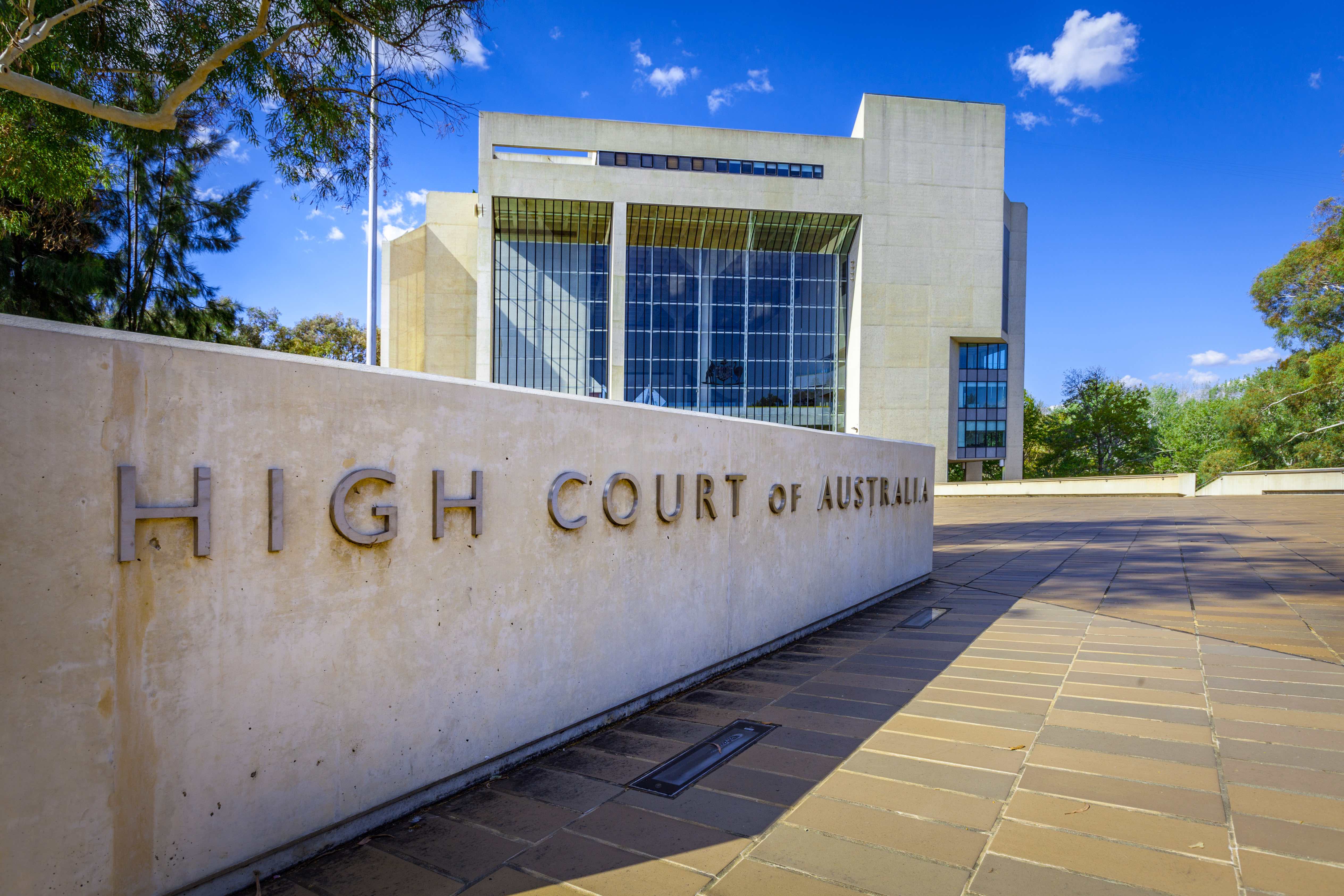High Court. Does s 501(6)(d)(iv) of the Migration Act 1958 (Cth) offend the freedom of political communication implied in the Constitution?
Section 501(6) of the Migration Act 1958 (Cth) provided:
(6) For the purposes of this section, a person does not pass the character test if:
...
(d) in the event the person were allowed to enter or to remain in Australia, there is a risk that the person would:
(i) engage in criminal conduct in Australia; or
(ii) harass, molest, intimidate or stalk another person in Australia; or
(iii) vilify a segment of the Australian community; or
(iv) incite discord in the Australian community or in a segment of that community
...
Otherwise, the person passes the character test.
Some of the questions to the High Court (FCA) were as follows:
Question 1: Does the implied freedom of political communication under the Constitution deny both "legislative and executive power to restrict freedom of communication on governmental or political matters unless the restriction is imposed to fulfil a constitutionally legitimate purpose and the restriction is reasonably appropriate and adapted to advance that purpose by constitutionally legitimate means"?
Question 2: Doe the words "incite discord" in s 501(6)(d)(iv) apply where, "in the event that the person were allowed to enter or to remain in Australia, there is a risk that the person would stir up or encourage dissension or strife in the Australian community, or a segment of that community, of a kind or to a degree that is harmful to that community or segment?
Question 3: Does the work "incite" in s 501(6)(d)(iv) require an intention or mental element?
Question 4: Is the "risk" spoken of in s 501(6)(d) not a theoretical risk but a real or appreciable risk?
Question 5: Is the "risk" spoken of in s 501(6)(d) "that the person would stir up or encourage dissension or strife on a larger scale – in the Australian community, or a segment of that community (including between segments of the community)", instead of one in relation to discord between two people or perhaps even a small number of people?
Question 6: Would harmful dissension or strife include the "intimidation, vilification or victimisation of, or disruption within or to, a segment of the Australian community"?
Question 7: Would harmful dissension or strife be "sufficient if only the feelings or sensitivities of the Australian community or a segment of the community would be hurt or adversely affected"?
Question 8: Doe the protection of the Australian community lie at the heart" of s 501, with the risk of harm to the Australian community being the mischief to which s 501 is directed?
Question 9: Can it be said that s 501(6)(d)(iv) "is not enlivened merely by debate or disagreement or even merely dissension or strife"?
Question 10: Are the limbs of 501(6)(d) mutually exclusive?
Question 11: Is the presumption against surplusage determinative?
Question 12: Where a law is alleged to infringe the implied freedom of political communication, should the Court ask the following questions: 1) "does the impugned law effectively burden freedom of communication about governmental or political matters in its terms, operation or effect"; 2) "is the purpose of the law legitimate, in the sense that it is compatible with the maintenance of the constitutionally prescribed system of representative and responsible government"; 3) "is the impugned law reasonably appropriate and adapted to advance that purpose in a manner that is compatible with the maintenance of that constitutionally prescribed system of government"?
Question 13: Does s 501(6)(d)(iv) of the Migration Act effectively burden freedom of communication about governmental or political matters in its terms, operation or effect?
Question 14: Can it be said that "no grant of a statutory right on conditions being met can ever amount to a burden on freedom of political communication even if one or more of the conditions relates to or affects whether the applicant for the right can, will, or may participate in political debate"?
Question 15: Is purpose of s 501(6)(d)(iv) "constitutionally legitimate, in the sense that it is compatible with the maintenance of the constitutionally prescribed system of government"?
Question 16: Is s 501(6)(d)(iv) "reasonably appropriate and adapted to advance that purpose in a manner that is compatible with the maintenance of that constitutionally prescribed system of government"?
The HCA answered those questions as follows:
The remainder of this article is only available to Case Law and Platinum subscribers.
Read our Terms & Conditions and upgrade below:
Monthly Subscriptions
Annual Subscriptions
Where GST applies, the above amounts are inclusive of GST.
Content Types
Basic Content includes basic news, some media articles and selected announcements.
Premium Content includes all our content, except for Case Law Content. In other words, it includes Basic Content, plus all our articles on legislative and policy changes, industry updates and the Migration Legislation Tracker.
Case Law Content includes Basic Content, plus case law summaries, analysis and extract, but does not include Premium Content.
Platinum Content includes Basic Content, plus Premium Content, plus Case Law Content. In other words, it includes ALL our content.
If you already have a Case Law or Platinum subscription, click on 'Login' below.











